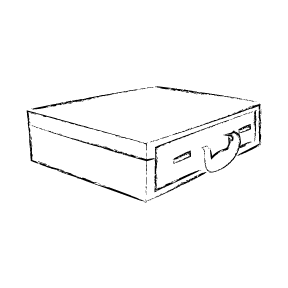What to do before you sign a non-compete agreement
You're excited. The new boss seems great, everybody is really friendly, and you'll finally be able to escape that miserable service job and actually use your degree.
Then the initial paperwork arrives: an I-9, insurance notices and brochures, some kind of contract... wait a minute, what is this? A Noncompete Agreement... Well,
you say to yourself, I guess that only matters if I leave this job. I'm not thinking about that right now. And I have to sign it, I guess, so I'm sure this will work itself out later...
Think again. You need to understand what you are signing before you sign it: you could be signing away your right to practice your profession. The average tenure in one job is only about five years. There are no guarantees about tomorrow, and, whether it is a better offer somewhere else, or that jerk Dave getting promoted over you and treating you like dirt, or family reasons that require you to move away, you could find yourself leaving this job very quickly - and deeply regretting that noncompete agreement.
Mississippi law allows non-compete agreements, so long as they are reasonable,
which is as vague as it sounds. Redd Pest Control Co. v. Heatherly, 248 Miss. 34 (1963). What it amounts to, in practice, is that the courts will enforce your non-compete agreement to whatever extent they think is reasonable
for someone doing the kind of work you do for the kind of employer you have. Some non-competes can prohibit you from engaging in your profession anywhere in the nation for a period of a year or more. Others will be limited to a particular county, or to a five-mile radius. It will depend on the nature of the business and your place in it. If, for example, you develop close relationships with the employer's customers all over the state, the courts will likely enforce an agreement preventing you from practicing the same profession for yourself or any competitor anywhere in the state, perhaps for year or even longer.
Some of these agreements are unclear. For example, consider a veterinarian prohibited from practicing within Madison County, within a ten-mile radius of the employer's practice.
Suppose the veterinarian opens a practice 9 miles away, but in Rankin County? Is this prohibited? It is good to notice these issues before signing, and the trained eye of an attorney can identify and advise about these kinds of issues.
What about bargaining with the employer about the non-compete before signing? This is a matter requiring a great deal of sensitivity: the new employee doesn't want to send a signal to the employer that she is already planning to leave, or that she loves to litigate, but at the same time she needs to protect herself.
The strategic, confidential advice of an attorney could be extremely helpful in this situation. And it may be more affordable than you think.



Pursuant to MRPC 7.4(a)(2) FREE BACKGROUND INFORMATION AVAILABLE UPON REQUEST
This site is for general information only, and creates no attorney-client relationship. Sending inquiries to the firm does not create an attorney-client relationship. By calling or emailing the firm, you are consenting to receive return calls, emails, mailings and text messages from the firm.
To get legal advice about an employment law, labor law, federal employee law, whistleblower protection, labor unions, worker cooperatives, immigration, discrimination, harassment, wrongful termination, severance, or any related question, you must first have a conflicts check by the firm. We represent exclusively workers, worker cooperatives and unions, but we still must check for potential conflicts of interest, for example, between a supervisor and employee.
First provide the firm with your name, and the name of the person you are making claims against. This allows the firm to check for such conflicts of interest. Until you receive confirmation that there is NO CONFLICT, none of the information you provide will be considered confidential. Do NOT provide any confidential information before we have asked you to do so.
Once we have confirmed there is no conflict, you may discuss your matter with staff in a little more detail, and, if requested, make an appointment. If at your appointment the firm accepts you as a client in writing, then the attorney will be able to provide you with employment law advice.
.
.
.